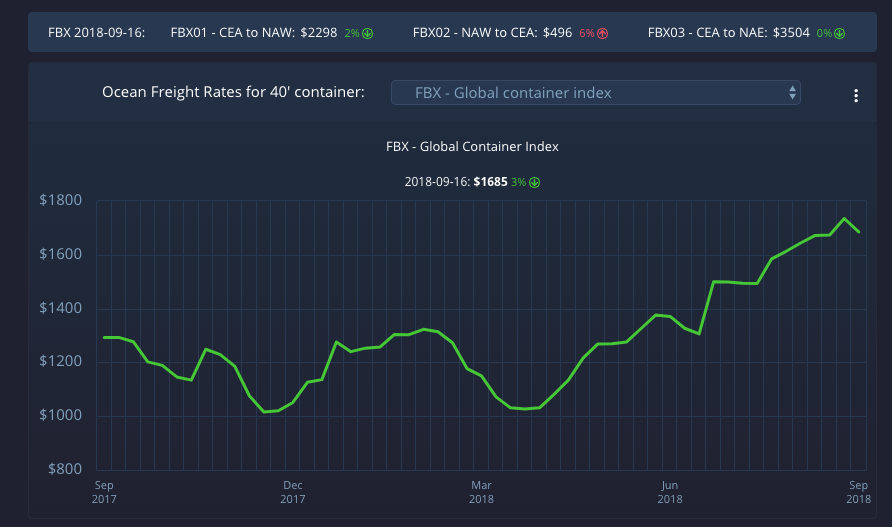Adeyemi Ajao (above left), the co-founder and managing director of Base10 Partners, was surprised to hear his firm’s $137 million fund was the largest debut to date for a black-led venture capital firm.
He and his co-founder — managing director TJ Nahigian (above right) — found out from none other than their fund’s own limited partners, who told them they should seek out institutions looking to invest in diverse fund managers.
“Oh man, I was like, ‘yeah, I know I’m black but so what?'” Ajao told TechCrunch. “I can be a little bit naive about these things until they become extremely apparent.”
Ajao is African, European, Latin, and now, having spent a decade in San Francisco, American. Growing up in between Spain and Nigeria, it wasn’t until landing in the Bay Area that he was forced to confront a social dynamic absent in his international upbringing: racial inequality and being black in America.
“The U.S. is pretty different about those things,” he said. “I was surprised when at Stanford I got an invitation to a dinner of the Black Business Student Association. I’m like, ‘why would there be a Black Business Student Association? That’s so weird?’ It took me a while, a good, good while, to be like ok, here there’s actually a really entrenched history of a clash and people being treated differently day-to-day.”
In the business of venture capital, the gap in funding for black founders and other underrepresented entrepreneurs is jarring. There’s not a lot of good data out there to illustrate the gap, but one recent study by digitalundivided showed the median amount of funding raised by black women founders is $0, because most companies founded by black women receive no money.
Ajao certainly hadn’t thought the color of his skin would impact his fundraising process, and, in retrospect, he doesn’t think it did. Still, he recognizes that pattern recognition and implicit bias continue to be barriers for diverse founders and investors.
Now, he plans to leverage his unique worldview to identify the next wave of unicorns others VCs are missing. Base10 doesn’t have a diversity thesis per say but it plans to invest in global companies fixing problems that affect 99 percent of the world, not the Silicon Valley 1 percent.
I sat down with Ajao in Base10’s San Francisco office to discuss his background, the firm’s investment focus and the importance of looking beyond the Silicon Valley bubble.
Automation of the real economy
Base10 is writing seed and Series A checks between 500,000 and $5 million. It’s completed 10 investments so far, including in Brazilian mobility startups Grin and Yellow, which closed a $63 million Series A last week.
The firm is looking for entrepreneurs who have spent years in their industries, whether that be agriculture, logistics, waste management, construction, real estate or otherwise, and are trying to solve problems they’ve experienced first-hand.
“We are much more likely to fund someone that actually worked for eight years on a construction site and was like, ‘you know what, I think this could be done better and maybe I can make my life easier with automation,’ rather than a Ph.D. in AI out of the Stanford lab that says ‘I think construction is inefficient and it can be done without people,'” Ajao said. “[We are] kind of flipping the paradigm in that sense.”
The firm has also backed birth control delivery startup The Pill Club, on-demand staffing company Wonolo and Tokensoft, a platform for compliant token sales.
Beyond the bubble
Ajao and Nahigian have a mix of operational and investing experience.
On the VC side, Nahigian, a Los Angeles native, spent seven years investing via Summit Partners, Accel, then Coatue Management. In 2014, he co-founded Jobr, a mobile job platform that was later acquired by Monster, where he became the VP of product and head of mobile.
Ajao was most recently a VP at Workday where he led the launch of Workday Ventures, a VC fund focused on AI for enterprise software. He joined Workday after the company acquired his startup, Identified, in what was his second successful exit to date. Before that, he co-founded Spanish social media company Tuenti, which Telefonica paid $100 million for in 2010.
He also helped incubate and launch Cabify, a Spanish ride-hailing company based in Madrid. The Uber competitor raised $160 million at a $1.4 billion valuation earlier this year.
Ajao was Nahigian’s first investor in Jobr, which was also backed by Tim Draper, Redpoint Ventures, Eniac Ventures, Lowercase Capital and more. The pair stayed in touch, discussed startups and potential deals, ultimately deciding to go into business together.
They agreed Base10 should support companies solving real problems and that as investors, they needed to be able to see beyond the Silicon Valley bubble.
“Do we feel a little bit of a responsibility? Like … ‘hey, you should help Silicon Valley be more aware of global issues.’ Yes,” Ajao said. “I try to spend a lot of time meeting with founders that either look different or are trying to make it here and I try to be super open about my journey and my travels.”
His piece of advice to other VCs is one that countless diverse founders and investors have been shouting at the top of their lungs: Invest in underrepresented founders, it’s just good business.
“If you have the same company and one is run by a female and one is run by a male, and it’s the same stuff, you should probably invest in the female, because that person probably had a harder time getting there,” he said. “It’s actually good business. I believe that.”
“The more open and comfortable we get about talking about these things, the better it is for both parties.”



